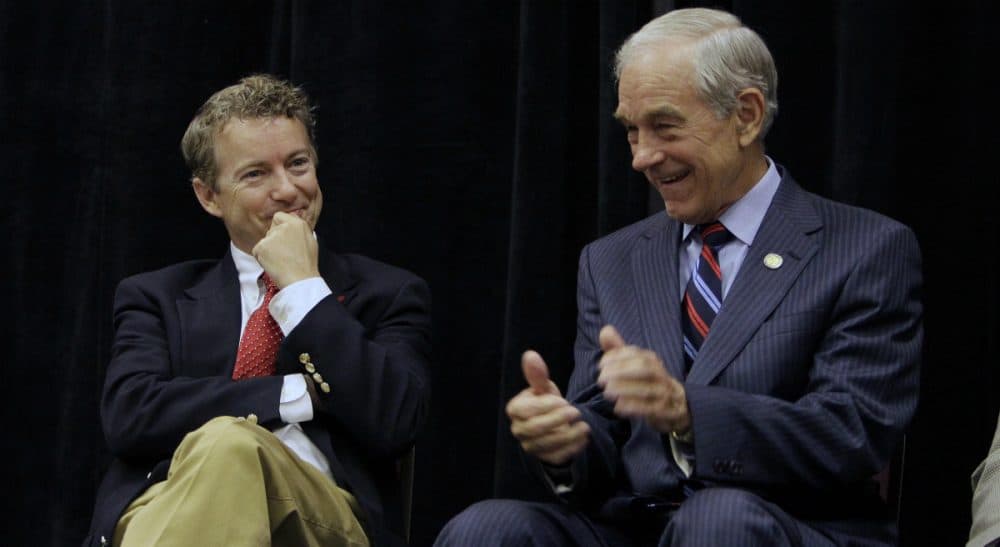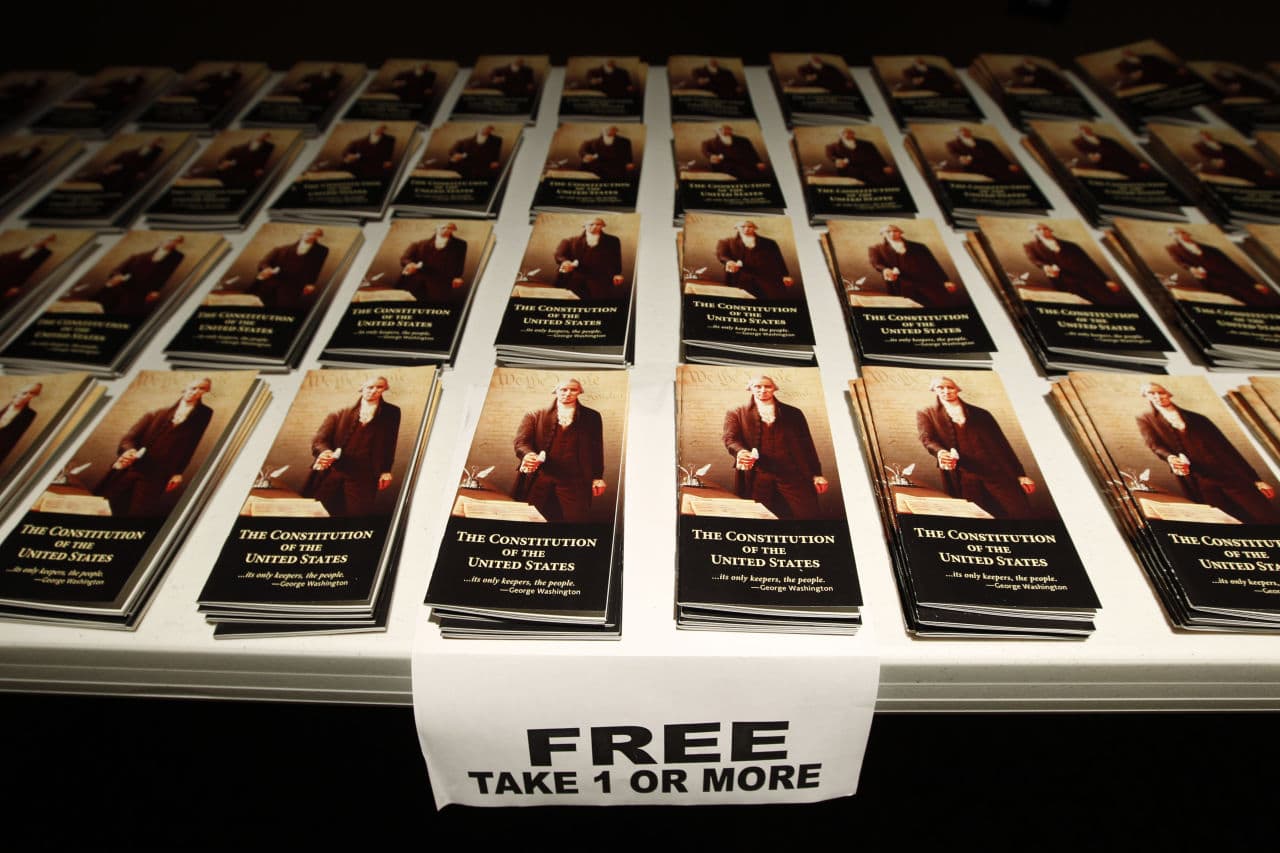Advertisement
The Problem With Libertarianism

After decades as bit players in American politics, libertarians are enjoying their long-awaited close-up. Ron Paul surprised many with better-than-expected showings in the 2012 Republican primaries, and now his son, Sen. Rand Paul, is taking the banner into the 2016 battle. True, the progeny is less purist; one column, headlined “Lukewarm Libertarian,” faulted the Kentuckian’s eagerness to boost military spending and lock down the border against illegal immigrants. High taxes for the military-industrial complex and restrictions on the right to travel as one chooses affront the Ayn Rand set’s animating spirit of maximum personal liberty.
But that writer admitted that Rand Paul, “to the extent we can ever hope for real political success,” is libertarians’ best bet, surpassing his Republican opponents by taking a live-and-let-live attitude toward states that legalize marijuana and calling for budget cuts that would make many non-libertarians gag (62 percent off the National Science Foundation is not a haircut; it’s a beheading). Add in Paul’s concern about the racial imbalance in prison sentencing and you have the makings of a platform with appeal to civil rights-conscious young people who want their government to let them smoke a little weed and keep its paws off their private information.
the American experience offers a laboratory case of why libertarianism, to quote conservative columnist Charles Krauthammer, is 'not a governing philosophy.'
It doesn’t get better for libertarians when, as another pundit wrote, some Paul staffers would like to time-travel back to the 1850s, believing that “Abraham Lincoln helped put us on the path to the leviathan state.”
Personally, when it comes to the appropriate role of government, I trust the judgment of Lincoln, who saved the Union and gave free farmland and subsidized college education to the needy, over libertarians. True believers always privilege ideology over experience, and the American experience offers a laboratory case of why libertarianism, to quote conservative columnist Charles Krauthammer, is “not a governing philosophy.” Our third and transformative president, Thomas Jefferson, road-tested libertarian principles in the White House — and achieved his greatest success by ditching them.
Jefferson famously advocated limited government, at a time when even “big government” Americans wanted little more than a fiscally empowered Washington, national bank and industry-protecting tariffs; the regulatory and welfare states didn’t exist. The author of the Declaration of Independence tried to govern as he preached, reducing federal employees, Army soldiers and the national debt.
Then came the Louisiana Purchase.

France’s offer of 828 million acres violated key Jeffersonian, small-government tenets. Then as now, the libertarian-leaning were strict constructionists for whom the Constitution allowed only what it explicitly said — and it was silent on authorizing the federal government to buy land. And with the young nation unable to pay cash on the barrelhead, the only financing was anathema to Jefferson: borrow and send the national debt soaring.
But Jefferson also understood that standing on principle would jeopardize U.S. security and prosperity. By selling their land, the powerful and dangerous French would exit our doorstep, leaving the country safer. And the U.S. would acquire vast natural resources, topped by the Mississippi, the water route to international markets for American goods.
Today, a small-government man like Ted Cruz might shut down the government over such a deal. Jefferson swallowed his principles, rationalized a little (the purchase was a treaty, which the Constitution permitted the government to make), and took the deal. History has blessed his decision, which can hardly be said of Cruz.
Our third and transformative president, Thomas Jefferson, road-tested libertarian principles in the White House -- and achieved his greatest success by ditching them.
Whatever the virtues of his civil liberties stands, Paul hasn't learned Jefferson's lesson when it comes to economics. From his openness to the gold standard, which all but libertarian economists agree strangled the economy before FDR shelved it during the Great Depression, to his proposed elimination of the estate tax, support for fossil fuels and hostility to anti-poverty programs, he may well merit The New Republic's description as the presidential candidate with "the most dangerous economic views."
This is not to dispute Krauthammer’s praise of libertarianism as a valuable critique of excessive government. Our tax code is needlessly complex, usually in favor of the elite. A libertarian-type weeding (though not the outright abolition some libertarians favor) would be a blow against inequality. There are safety net programs that don’t justify their expense. And when a military man like former Army colonel and BU scholar Andrew Bacevich says our defense budget is bloated, attention, to quote Willy Loman’s wife, must be paid.
But Rand-inistas forget what Jefferson learned: At day’s end, theirs is a philosophy for backbenchers, not for leaders of a great nation.
